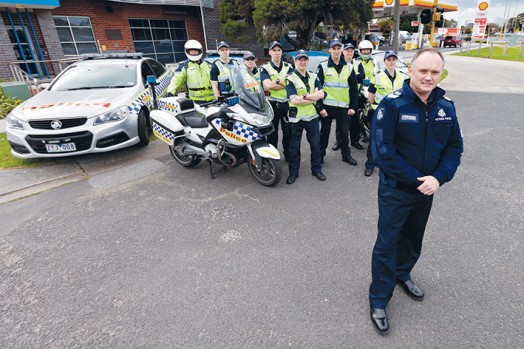
A FOCUS on high visibility policing and the targeting or recidivist road offenders has helped significantly reduce deaths and serious injuries on Kingston roads.
Senior Sergeant John Cormack was appointed mid last year to head the Moorabbin highway patrol unit, with a brief to refocus road policing efforts to drive down incidents of road trauma.
Since the change to highway patrol’s “business model” in 2013, which aimed to “align our enforcement activity with areas of highest road trauma”, Senior Sergeant Cormack a dramatic decrease in collisions, especially those involving fatalities and serious injury, had been achieved.
“We are very determined to drive road trauma downwards by ensuring that police are visible, productive and act as a deterrent to drivers who continue to flout the rules of the road,” he said.
“The public may have noticed an increased police presence in areas of high road trauma such as the Nepean Highway over the past 12 months.
“All police across the division which encompasses the cities of Kingston, Bayside and Glen Eira, have a role to play in road safety and our aim is to ensure people get to their destination safe and well and without being placed at risk.”
He said the result was a 20 per cent reduction in serious injury collisions and a 16.7 per cent reduction in fatalities over the past 12 months.
“As we move into the next financial year we will continue to focus on the causal factors of collision such as speed, distraction, fatigue and people who continue to tail gate,” Senior Sergeant Cormack said.
“Our collision data shows that tailgating is the most prevalent causal factor of collisions in this area and we urge every driver to leave sufficient room when driving.”
He said serious collisions not only had financial implications for families of victims and the wider community but also caused grief and trauma that many people never fully recover from.
“Emergency Services workers attend these collisions every day and when you hear the stories around some of the senseless actions of drivers you understand why it must be an ongoing commitment.”